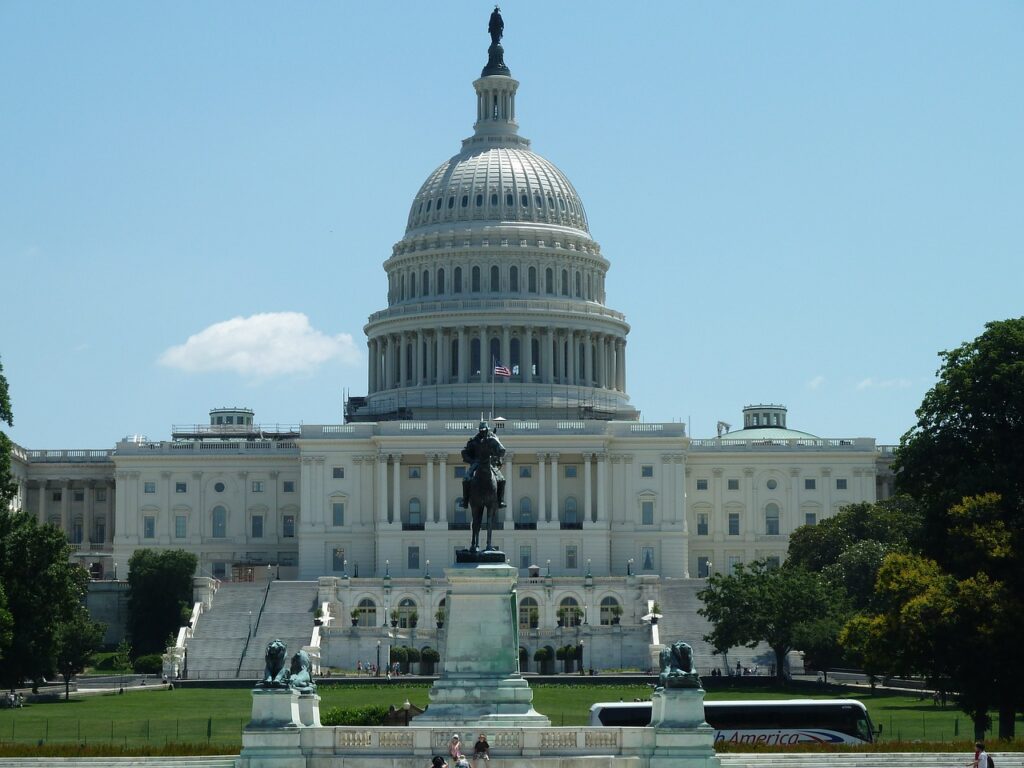By Ryan James
Government Agencies
Many governmental organizations are involved in finance or the stock market. They are typically lead by a head or chairman. The primary departments in this category have jurisdiction over the United States federal government, a state government, a foreign government, or the European Union, a supranational organization.
Voting
Investors who own common stock in a company possess the right to vote in corporate elections. Common shares have voting rights, and preferred shares may receive larger dividends but do not have voting rights. This can be denoted by the class of stock; it can be written as class A/B/C. Individuals can vote in special meetings, annual meetings, or any other meeting or election. Polling takes place via proxy, online, in-person, mail, or phone. Investors who use electronic trading platforms receive their ballots online or by mail. One can vote online by using a link provided by the electronic trading platform that causes a redirection to a website such as proxyvote.com. Sans an electronic trading platform, investors must provide a fifteen or sixteen-digit access code. Each share owned by an investor ere a record date (provided by the company) translates to a vote. The company will contribute recommendations for each amendment. An individual attending the meeting will act as an emissary for all who choose to abstain from voting. The topics on which shareholders most often vote are director elections, shareholder proposals, executive compensation, ratification of the appointment of an independent auditor, and mergers and acquisitions. The company provides all information on a proxy statement and annual report.
“Listening to others, especially those with whom we disagree, tests our own ideas and beliefs. It forces us to recognize, with humility, that we don’t have a monopoly on the truth.” – Janet Yellen
Government Agencies – Domestic
Despite many United States government agencies dealing with finance, only a handful directly affect the stock market. The primary departments are the branches of the federal government. The president, vice president, and cabinet members comprise the executive branch. Public announcements and meetings involving these people can involve significant financial news. Investor sentiment of this news is what causes the market to react. The declaration of a new stimulus package by the president can excite investors; the proclamation of higher capital gains taxes on wealthy investors worries them. The legislative branch consists of the House of Representatives and the Senate, together comprising the United States Congress. The United States Supreme Court wholly represents the federal judicial branch. The legislative and judicial branches exhibit similarity to the executive branch because investors watch for any announcements or decisions on economic policy.
On the national level, other departments function wholly to enact change in the financial market. The archetypes of this are the U.S. Securities and Exchange Commission (SEC), Federal Reserve System (fed), and the United States Department of the Treasury. Gary Gensler is the Chair of the Securities and Exchange Commission, Jerome Powell is the Chair of the Federal Reserve, and Janet Yellen is the United States Secretary of the Treasury. The former is an independent agency within the United States government designed to protect the national banking system and investors. It enforces the law within the financial sector to prevent market manipulation; it formed in the 1930s because of the stock market crash. Created in 1913, the Federal Reserve acts as America’s central bank. The Fed supervises and regulates America’s banks, ensures stability in the financial market, prevents stock market crashes, manages financial crises, controls the United States dollar, and provides banking services to the United States government, as well as American and international banks. The Department of the Treasury oversees the country’s financial infrastructure. The Bureau of Engraving and Printing and the Mint are bureaus within this department. The department “operates and maintains systems that are critical to the nation’s financial infrastructure, such as the production of coin and currency, the disbursement of payments to the American public, revenue collection, and the borrowing of funds necessary to run the federal government.” They additionally control bonds and interest rates, such as the 10-Year Treasury Note. These government organizations administrate the financial sector in the United States.
State governments hold a more confined, constricted reach; consequently, the resolutions made under them result in little effect on the market. These decisions, though, may affect investors and corporations residing within the state. State governments have components comparable to that of the federal government that act correspondingly.
Government Agencies – Abroad
Foreign governments have a limited bearing on American stocks unless dealing with particular American businesses or the American government. Although, American investors who own stock in international companies can be affected by their governments. The primary parties are the European Union, the United Kingdom of Great Britain and Northern Ireland (post-Brexit), and the People’s Republic of China. In place of the Federal Reserve, the EU utilizes the European Central Bank (ECB). England’s central bank is known as the Bank of England, China’s is the People’s Bank of China, and Canada’s is the Bank of Canada. Other financial regulatory bodies of the European Union are the European Commission and European Banking Authority (EBA).
Summary and Bottom Line
This article discussed the various government agencies in the United States and abroad. It also touched upon investors’ voting rights. The United States uses the SEC, Fed, and Department of the Treasury to regulate the financial sector within the country. Investors can vote for companies they own stock in, receiving one vote per share held ere a record date.
Disclosure: All statements and opinions expressed in this article are objective and my own. I am not a financial advisor. I do not recommend the trade or use of any particular stocks or services. I acknowledge the risks of investing.



More Stories
APPLE: A FUTURE AI POWERHOUSE?
WHICH SEMICONDUCTOR STOCK WILL END UP ON TOP?
3M: IS THIS DIVIDEND KING LANGUISHING?